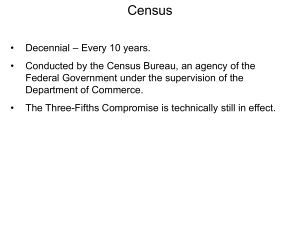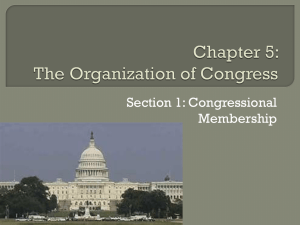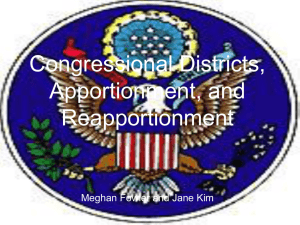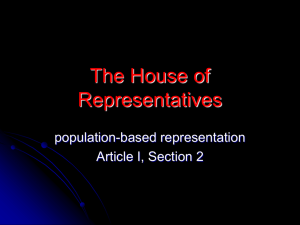MEMORANDUM FROM: Sid Hemsley, Senior Law Consultant DATE: January 31, 2002
advertisement
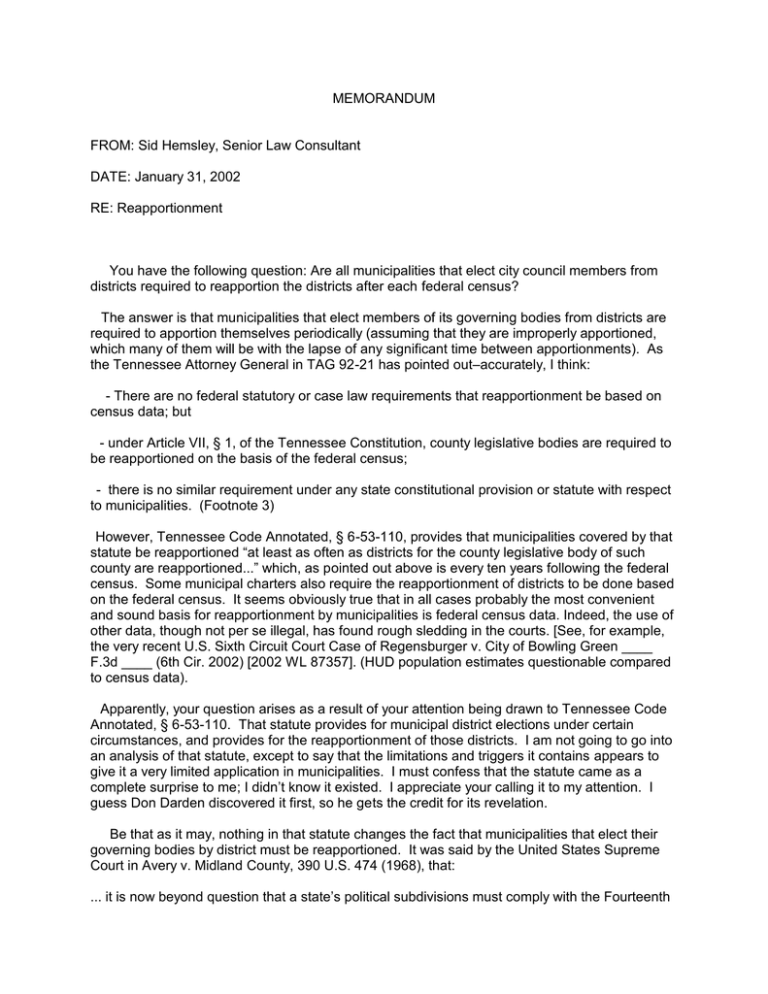
MEMORANDUM FROM: Sid Hemsley, Senior Law Consultant DATE: January 31, 2002 RE: Reapportionment You have the following question: Are all municipalities that elect city council members from districts required to reapportion the districts after each federal census? The answer is that municipalities that elect members of its governing bodies from districts are required to apportion themselves periodically (assuming that they are improperly apportioned, which many of them will be with the lapse of any significant time between apportionments). As the Tennessee Attorney General in TAG 92-21 has pointed out–accurately, I think: - There are no federal statutory or case law requirements that reapportionment be based on census data; but - under Article VII, § 1, of the Tennessee Constitution, county legislative bodies are required to be reapportioned on the basis of the federal census; - there is no similar requirement under any state constitutional provision or statute with respect to municipalities. (Footnote 3) However, Tennessee Code Annotated, § 6-53-110, provides that municipalities covered by that statute be reapportioned “at least as often as districts for the county legislative body of such county are reapportioned...” which, as pointed out above is every ten years following the federal census. Some municipal charters also require the reapportionment of districts to be done based on the federal census. It seems obviously true that in all cases probably the most convenient and sound basis for reapportionment by municipalities is federal census data. Indeed, the use of other data, though not per se illegal, has found rough sledding in the courts. [See, for example, the very recent U.S. Sixth Circuit Court Case of Regensburger v. City of Bowling Green ____ F.3d ____ (6th Cir. 2002) [2002 WL 87357]. (HUD population estimates questionable compared to census data). Apparently, your question arises as a result of your attention being drawn to Tennessee Code Annotated, § 6-53-110. That statute provides for municipal district elections under certain circumstances, and provides for the reapportionment of those districts. I am not going to go into an analysis of that statute, except to say that the limitations and triggers it contains appears to give it a very limited application in municipalities. I must confess that the statute came as a complete surprise to me; I didn’t know it existed. I appreciate your calling it to my attention. I guess Don Darden discovered it first, so he gets the credit for its revelation. Be that as it may, nothing in that statute changes the fact that municipalities that elect their governing bodies by district must be reapportioned. It was said by the United States Supreme Court in Avery v. Midland County, 390 U.S. 474 (1968), that: ... it is now beyond question that a state’s political subdivisions must comply with the Fourteenth Amendment...[and] when the State delegates lawmaking power to local governments and provides for the election of local officials from districts specified by statute, ordinance, or local charter, it must insure that those qualified to vote have the right to an equally effective vote in the election process....the Constitution permits no substantial variation from equal population in drawing districts for units of local government having general governmental powers over the entire geographic area served by the body. That has been the law followed by the federal and state courts since then. In short reapportionment by municipal governing bodies has been elevated to a U.S. Constitutional command, and any statute expressly or impliedly to the contrary would not change that fact.
